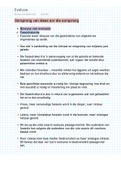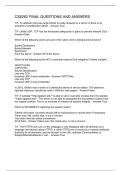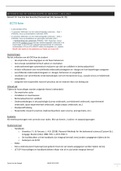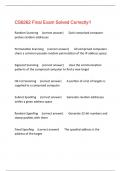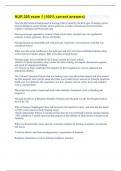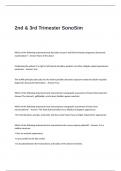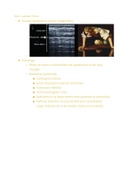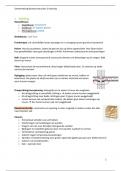Essay
Mental health and well-being
- Institution
- PEARSON (PEARSON)
Having good mental health makes life easier. It helps us to calm and comfort ourselves when we're upset, to cope with the losses, changes, fears and uncertainties in life, to make and keep good relationships with other people and to learn. Having good mental health does not mean feeling good all th...
[Show more]




